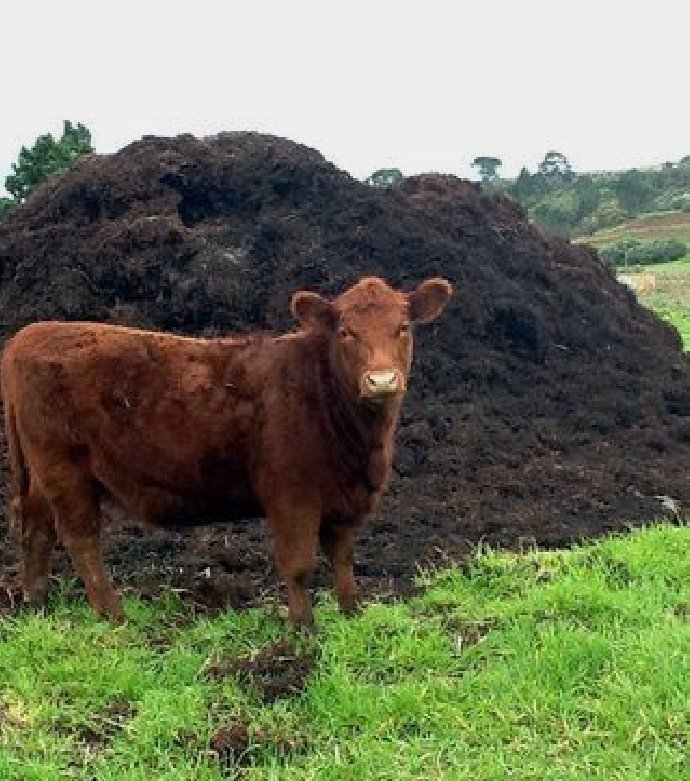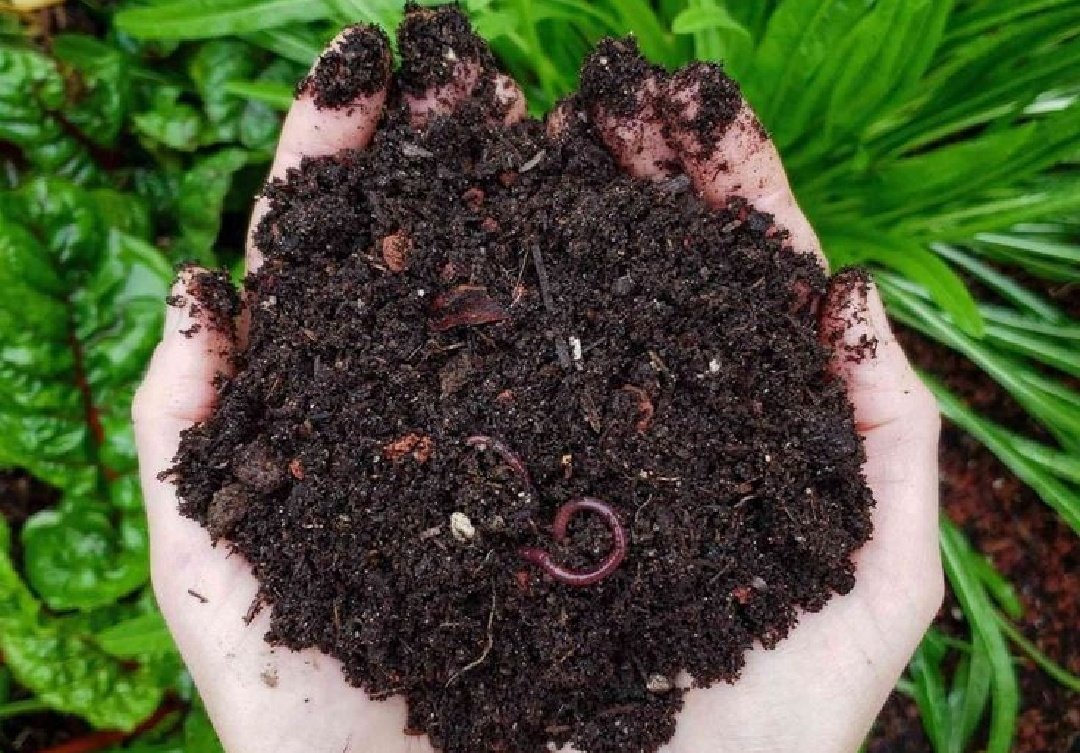
Compost is a mixture of organic residues (manure, animal carcasses, straw, etc.) that have been piled, mixed and moistened to undergo thermophilic (high heat ) decomposition.
Benefits of compost manure.
1) IMPROVES SOIL HEALTH
Composting produces humus, which increases organic matter in soil, improves water-holding capacity, enhances microbial growth and other measurements of soil health.
1) IMPROVES SOIL HEALTH
Composting produces humus, which increases organic matter in soil, improves water-holding capacity, enhances microbial growth and other measurements of soil health.
2) STABILIZE NITROGEN (reduced N volatilization)
By bonding to carbon, N is converted into an organic, slow-release compound. I.E, dry chicken manure getting wet will become odourous, you’ll have volatilization of NH3. Being able to compost it can keep it in a stabilized form.
By bonding to carbon, N is converted into an organic, slow-release compound. I.E, dry chicken manure getting wet will become odourous, you’ll have volatilization of NH3. Being able to compost it can keep it in a stabilized form.
3) REDUCES ODOUR
Under proper anaerobic conditions, composting can quickly make manure less smelly.
Under proper anaerobic conditions, composting can quickly make manure less smelly.
4) REDUCE VOLUME
Composting reduces volume by approximately two-thirds, making manure, livestock bedding or waste easier and more cost effecitve to transport especially if you want to sell yours.
Composting reduces volume by approximately two-thirds, making manure, livestock bedding or waste easier and more cost effecitve to transport especially if you want to sell yours.
5) DESTROY PATHOGENS
The high temperatures created during proper composting can kill weed seeds and microorganisms.
The high temperatures created during proper composting can kill weed seeds and microorganisms.
6) PROVIDE NUTRIENTS FOR ORGANIC (and conventional!) PRODUCTION.
Compost is a critical source of nutrients in organic farming. If composted properly, manure from animals fed genetically modified grain can be used in organic production.
Compost is a critical source of nutrients in organic farming. If composted properly, manure from animals fed genetically modified grain can be used in organic production.
7) DIVERT FROM LANDFILLS NUTRIENTS IN URBAN AND MUNICIPAL WASTE.
In the long-term, recycling OF nutrients will become more IMPORTANT. We’re part of a massive amount of nutrient movement locally and globally, and so we have to think about our place in that...
In the long-term, recycling OF nutrients will become more IMPORTANT. We’re part of a massive amount of nutrient movement locally and globally, and so we have to think about our place in that...
...putting things to landfills just isn’t going to cut it. We are farmers, taking care of the land is key. It’s inevitable that we have to tighten up our recycling and getting those nutrients out of urban areas back onto the land is the aim. Composting is a means of that.
Right. So now let's look at the manure types. PS: As a rule, the manure from grain-fed animals is higher in nutrients that that from grass-fed animals. Poultry manure is the richest of all.
So like, cat feaces or dog manure must compost for at least two years and cannot be applied directly to food crops. Human manure, or humanure, should never be used in the landscape. Drugs, diseases, and many more potential problems are harbored in our waste...
.. only professional composters possess the tools and knowledge to adequately and safely compost human waste.. So let's look at the Chicken, Goat, Cow, Sheep, Horse and pig pop poo 🐐🐴🐔💩
CHICKEN
Ideally, the best manure is probably chicken, since it has a very high content of nitrogen, a need all plants have, but it must be composted well and aged to prevent burning plants. Chicken manure is a rich source of nutrients.
Ideally, the best manure is probably chicken, since it has a very high content of nitrogen, a need all plants have, but it must be composted well and aged to prevent burning plants. Chicken manure is a rich source of nutrients.
HORSE
Horse manure takes longer and has similar content to cow manure but its larger size and the weed seeds the animal digests means it takes much longer to age and compost. Horse manure can give new plants a jump start while providing essential nutrients for continual growth.
Horse manure takes longer and has similar content to cow manure but its larger size and the weed seeds the animal digests means it takes much longer to age and compost. Horse manure can give new plants a jump start while providing essential nutrients for continual growth.

SHEEP
Sheep manure is referred to as cold manure because of its low nitrogen content. It's high in both phosphorus and potassium, essential elements for optimal plant growth. These nutrients help plants to establish strong roots, defend against pests.
Sheep manure is referred to as cold manure because of its low nitrogen content. It's high in both phosphorus and potassium, essential elements for optimal plant growth. These nutrients help plants to establish strong roots, defend against pests.

PIG
Today, too many pigs carry E.coli, salmonella, parasitic worms etc in their manure. So add it to your compost pile and allow it to rot long enough and hot enough. It will break down and kill the stuff that are a danger to your health and viola, rich organic compost!
Today, too many pigs carry E.coli, salmonella, parasitic worms etc in their manure. So add it to your compost pile and allow it to rot long enough and hot enough. It will break down and kill the stuff that are a danger to your health and viola, rich organic compost!

GOAT
Using goat manure is optimal growing conditions for your plants. The naturally dry pellets are not only easy to collect and apply, but are less messy than many other types of manure. Goat manure can even be composted and used as mulch. It doesn't attract insects/burn plants
Using goat manure is optimal growing conditions for your plants. The naturally dry pellets are not only easy to collect and apply, but are less messy than many other types of manure. Goat manure can even be composted and used as mulch. It doesn't attract insects/burn plants
COW
cow manure contains high levels of ammonia and potentially dangerous pathogens. For this reason, it’s usually recommended that it be aged. It's rich in ammonia and not in nitrogen like the others. This heavy manure will make your soil moisture holding.
cow manure contains high levels of ammonia and potentially dangerous pathogens. For this reason, it’s usually recommended that it be aged. It's rich in ammonia and not in nitrogen like the others. This heavy manure will make your soil moisture holding.

• • •
Missing some Tweet in this thread? You can try to
force a refresh













